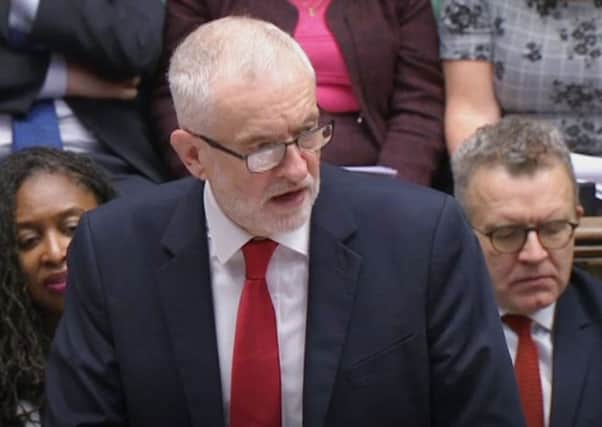How Jeremy Corbyn can save Union by answering ‘West Lothian Question’ – Alastair Stewart


A book is out this week on the relationship between Winston Churchill and Clement Attlee. One thought the other a member of the patrician high guard; the other a “sheep in sheep’s clothing” who wanted to tear the whole establishment down.
The truth was somewhere in the middle. Attlee and Churchill: Allies in War, Adversaries in Peace by Leo McKinstry really does get to the heart of a complicated but fascinating relationship. Between 1935 and 1955, Churchill and Attlee played musical chairs as leader of the opposition and prime minister. Attlee served as Churchill’s deputy prime minister and a member of his War Cabinet, and for all their polarised views there was a respect that never stopped the dirty business of politics.
Advertisement
Hide AdAdvertisement
Hide AdAs Attlee demonstrated during the Second World War, the leader of the opposition is much more than a political pugilist – the opposition serves to hold the government to account and that mandates it to offer a credible national alternative. These men and women belonged to a generation who could attack at the political jugular and still come together in the national interest and leave a legacy of patriotic statesmanship (to which both have significant claim).
With some irony, then, Labour leader Jeremy Corbyn may be the only one who can save the UK. Even if he became prime minister tomorrow, the constitutional restrictions of devolution would make it impossible to implement a radical programme of nationalisation. He wants to reshape the country but doesn’t have the constitutional means to do so unless there is an unlikely SNP wipeout in Scotland and a reversion to the days of Labour dominance.
An answer to West Lothian Question?
David Cameron’s “English votes for English laws” campaign was well meaning but naively parochial in trying to resolve Tam Dalyell’s West Lothian question. The SNP rightly opposed its exclusion because any vote could have a knock-on impact on Scotland.
Westminster is now an overwhelmed hotchpotch of competing priorities and heated contentions, usually about Brexit but also between the devolved political parties and their UK umbrella namesakes.
Corbyn’s positions, particularly with regards to the Barnett formula, may have oscillated over the years, but at heart he’s an old school, left-wing metropolitan Marxist. His focus is already mostly on English issues with health and social care, and he has the potential to spark an English renaissance in the post-devolution, post-Scottish referendum, post-Brexit referendum world.
The Conservative Party, despite some ambitious attempts to federalise itself in Scotland, will never achieve it out of an axiomatic need to centralise. The Liberal Democrats are on the ropes; the SNP are committed to independence at all costs and, if Brexit is achieved, their case becomes all the more cemented as morally, and politically, inevitable.
English issues
Corbyn has as a remarkable opportunity to champion a federal Britain and an English parliament that can deal with English issues. If the Brexit mantra is to take back control, go the distance and use a period of incredible social disruption to create a new age of continuity that could save the UK. In many respects, if this or regional parliaments had been enacted from 1997 onwards, Brexit might not be the anti-establishment backlash it’s turned out to be.
For the voters, we have to seriously ask the question if the opposition is effective if it cannot at least explore exciting and radical ideas. Corbyn’s Labour is the most likely, albeit the most surprising, to spearhead the federal argument. He has a remarkable chance to play kingmaker and a vote-winning policy hand in England, but also across the UK too. If Brexit has demonstrated anything, the confusion at Westminster and the arguments in the devolved parliaments have all but necessitated federalism. It may well be the only way to save the UK.Alastair Stewart is a freelance writer and journalist. He writes regular features on politics and history with a particular interest in nationalism and the life of Sir Winston Churchill. Read more from Alastair at www.agjstewart.com and follow him on Twitter @agjstewart
